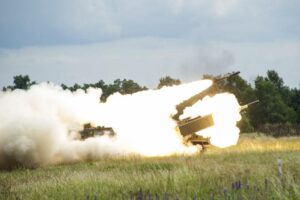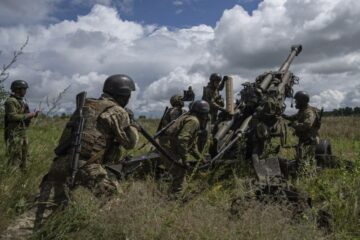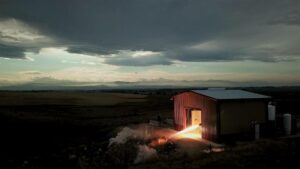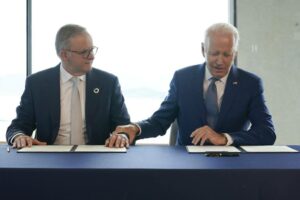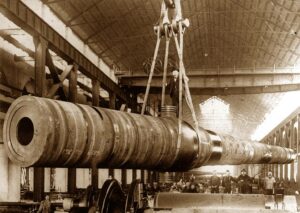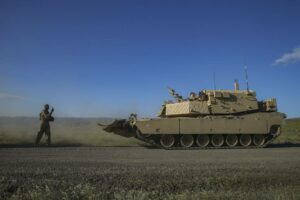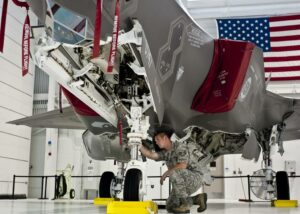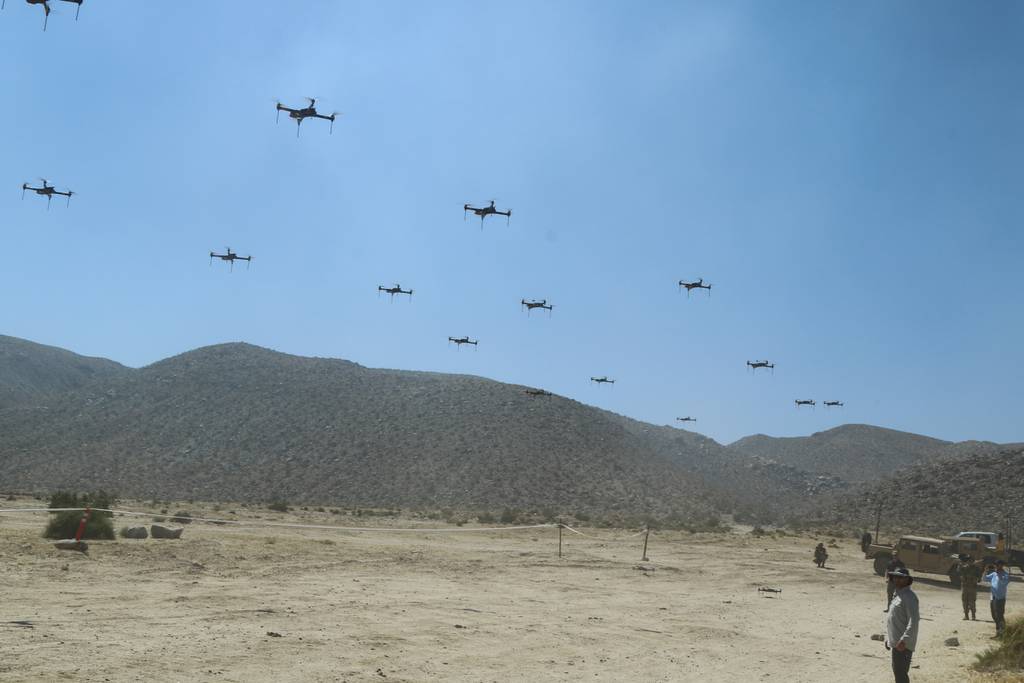
WASHINGTON — The Defense Innovation Unit plans to update industry on the status of the Replicator initiative during a technology summit next month.
The event, slated for Feb. 13 at the organization’s Mountain View, California headquarters, will focus broadly on scaling autonomous systems and deepening connections among DIU, the commercial sector and other Pentagon offices with a particular focus on U.S. Indo-Pacific Command priorities.
“The summit aims to produce insights and deepen relationships that DIU/DoD can use to shape thinking on efforts to close capability gaps,” DIU said in a Jan. 25 notice.
Included on the agenda is an update on the progress of Replicator — a Defense Department effort to quickly field thousands of attritable, autonomous systems.
Deputy Defense Secretary Kathleen Hicks in late August unveiled Replicator, setting a goal to deliver the capability within 18 to 24 months. To achieve that target, the Pentagon will increase or speed up production and fielding of existing systems and solicit new ones.
DIU’s role in the effort is to assess what gaps exist in the military services and combatant commands today — be it individual capabilities or enabling infrastructure — and vet the proposed capabilities, evaluating whether they meet the department’s needs and determining whether they can be produced quickly and in large quantities.
The organization’s director, Doug Beck, chairs the Defense Innovation Working Group, a panel of officials from the military services and combatant commands who will recommend projects that meet the Replicator criteria to the Deputy’s Innovation Steering Group, which oversees Pentagon efforts to rapidly field high-tech capabilities to address operational problems.
Briefing Congress
Aditi Kumar, DIU’s deputy director for strategy, policy and national security partnerships, said this week that Hicks approved the initial slate of Replicator capabilities in December. Following that approval, she tasked the military services with developing strategies to buy specific systems that can deliver those capabilities.
“The services are identifying the specific systems,” Kumar said at a Jan. 24 Hudson Institute event. “Our next step is to work with Congress.”
DIU is now meeting with lawmakers to update them on the capabilities and determine a funding strategy. The organization plans to make an announcement sometime after those briefings conclude, Kumar said, but noted DoD has not determined how much it will reveal about the individual systems.
“We have to think through which parts of Replicator we want to speak about publicly and then what parts we want to reserve,” she said. “That is what the operational needs mandate, and so the department is working through those and then we’ll share information at the appropriate time.”
Along with its information strategy, DIU is also working with the services and INDOPACOM to determine how to train operators on the systems and identify exercises where they can experiment with them.
Courtney Albon is C4ISRNET’s space and emerging technology reporter. She has covered the U.S. military since 2012, with a focus on the Air Force and Space Force. She has reported on some of the Defense Department’s most significant acquisition, budget and policy challenges.
- SEO Powered Content & PR Distribution. Get Amplified Today.
- PlatoData.Network Vertical Generative Ai. Empower Yourself. Access Here.
- PlatoAiStream. Web3 Intelligence. Knowledge Amplified. Access Here.
- PlatoESG. Carbon, CleanTech, Energy, Environment, Solar, Waste Management. Access Here.
- PlatoHealth. Biotech and Clinical Trials Intelligence. Access Here.
- Source: https://www.defensenews.com/battlefield-tech/2024/01/25/pentagon-to-brief-industry-on-replicator-status-at-tech-summit/
- :has
- :is
- :not
- :where
- $UP
- 10
- 2012
- 24
- 25
- 70
- a
- About
- Achieve
- acquisition
- address
- After
- agenda
- aims
- AIR
- Air Force
- also
- among
- an
- and
- Announcement
- appropriate
- approval
- approved
- ARE
- assess
- At
- AUGUST
- autonomous
- BE
- broadly
- budget
- but
- buy
- california
- CAN
- capabilities
- capability
- challenges
- Close
- commercial
- conclude
- Congress
- Connections
- covered
- criteria
- December
- Deepen
- Defense
- Defense Department
- deliver
- Department
- deputy
- Determine
- determined
- determining
- developing
- Director
- DoD
- doug
- during
- effort
- efforts
- emerging
- Emerging Technology
- enabling
- evaluating
- Event
- exist
- existing
- experiment
- Feb
- field
- Focus
- following
- For
- Force
- from
- funding
- gaps
- goal
- Group
- Have
- Headquarters
- How
- How To
- HTTPS
- identify
- identifying
- images
- in
- Increase
- individual
- industry
- information
- Infrastructure
- initial
- Initiative
- Innovation
- insights
- Institute
- IT
- ITS
- Jan
- jpg
- kumar
- large
- Late
- lawmakers
- make
- mandate
- Meet
- meeting
- Military
- Month
- months
- most
- Mountain
- much
- National
- national security
- needs
- New
- next
- noted
- Notice..
- now
- of
- offices
- officials
- on
- ones
- operational
- operators
- or
- organization
- Other
- panel
- particular
- partnerships
- parts
- pentagon
- plans
- plato
- Plato Data Intelligence
- PlatoData
- policy
- problems
- produce
- Produced
- Production
- projects
- proposed
- publicly
- quickly
- rapidly
- recommend
- Relationships
- Reported
- reporter
- Reserve
- reveal
- Role
- s
- Said
- secretary
- sector
- security
- Services
- setting
- Shape
- Share
- share information
- she
- significant
- since
- Slate
- So
- some
- Space
- Space Force
- speak
- specific
- speed
- Status
- steering
- Step
- strategies
- Strategy
- Summit
- Systems
- Target
- tech
- Technology
- that
- The
- Them
- then
- they
- think
- Thinking
- this
- this week
- those
- Through
- time
- to
- today
- Train
- u.s.
- unit
- Update
- use
- View
- want
- we
- week
- What
- whether
- which
- WHO
- will
- with
- within
- Work
- working
- Working Group
- zephyrnet



